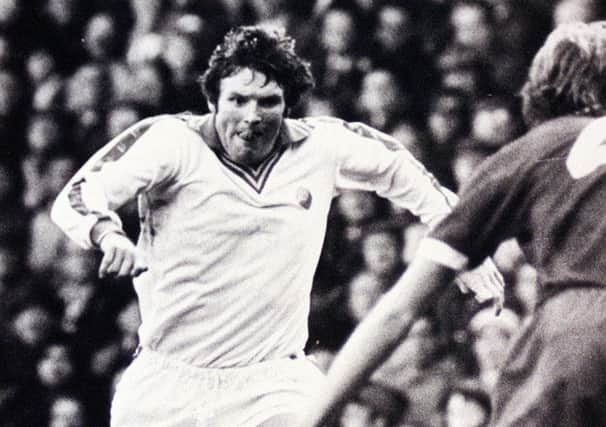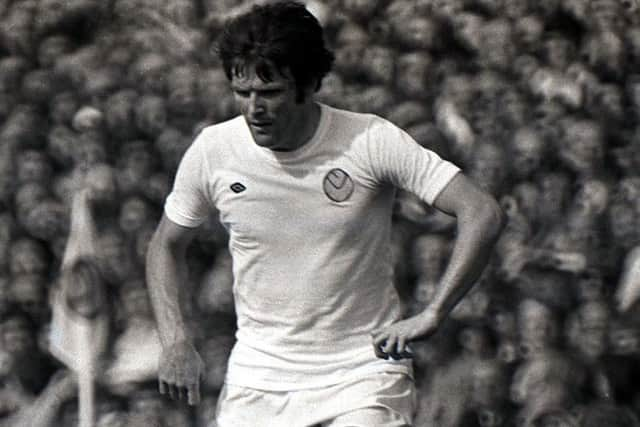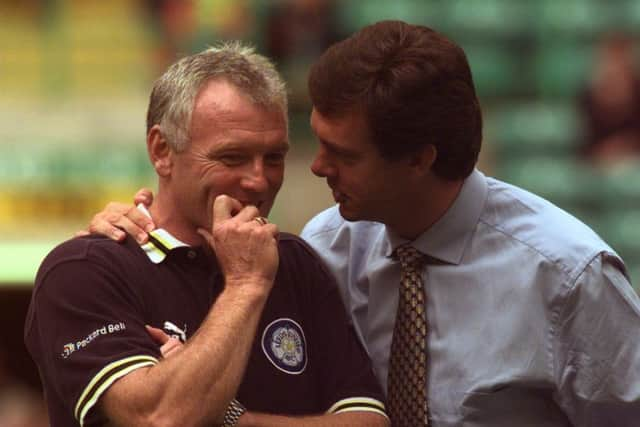Leeds United Nostalgia: Why icon Eddie Gray will always be a Whites legend


George Best has a number of worthwhile challengers at Manchester United, Wolves have it easy with Steve Bull, as do Southampton with Matt Le Tissier. Nottingham Forest’s main man never actually kicked a ball for them, but returned two European Cups. Chelsea’s is John Terry.
And then it comes to Leeds. A quick poll of supporters would crown Billy Bremner as the king of Elland Road, and with good reason – he’s the captain of the crew.
Advertisement
Hide AdAdvertisement
Hide AdBut there are others that are worthy of an argument, of course. Don Revie turned a big rugby league city into one of the proudest football dynasties in Europe and John Charles and Bobby Collins are others who could lay claim to the club’s greatest player.


But perhaps the greatest challenge to Billy’s crown comes from a fellow Scot whose influence on the club has spanned over 50 years. Eddie Gray turns 71 this week.
His longevity at the club paints him as a different figure to different generations of Leeds United supporters. A teenager today might see him as a passionate media personality, a 30-something one of the club’s great Academy coaches. Fans of a certain vintage would have you know he was one of the greatest wingers to grace the British game.
Don Revie’s immortal assertion – “When Eddie Gray plays on snow, he doesn’t leave any footprints”, – has become football folklore, and is fair a representation of his delicate touch and effortless running style. In an era of ‘dirty Leeds’ mud-slinging and hard man antics, Gray was never booked in his 454 matches for the Whites.
Advertisement
Hide AdAdvertisement
Hide AdHe had pace and a drop of the shoulder that would be worth eye-watering sums in today’s game. Having marked his debut with a goal on New Year’s Day 1966, he quickly became a key fixture. Entering his twenties, Gray was central to Leeds’ League Cup and Fairs Cup victories in 1968 and League Championship success a year later.


His most memorable season was in 1970 when he scored two wonder goals in a league match against Burnley and lit up the FA Cup final, winning man of the match for a virtuoso performance in the first game.
Injury problems curtailed his peak years, and he missed out on selection for the 1974 World Cup with a thigh problem. To put him alongside Best and Ryan Giggs as one of the greatest creative players to miss out on the game’s grandest stage is no exaggeration.
And the fact Gray made only 12 international appearances was rightly overlooked when he was inducted into Scottish football’s Hall of Fame in 2013.
Advertisement
Hide AdAdvertisement
Hide AdAfter relegation to the second tier in 1982, Gray was made Leeds United player-manager and put in place a youth policy that would produce the likes of Denis Irwin. He stabilised a club in some turmoil and narrowly missed promotion at the third attempt, leaving in 1985.
Short spells in charge at Whitby Town, Rochdale and Hull City followed, but there was only one club in his heart. He returned as United Academy coach and was as influential a figure in the creation of the “O’Leary’s Babies” as anyone else, rearing a host of internationals in preparation for one of the club’s most successful periods.
He once again played peacemaker as he took on the role of caretaker manager towards the end of the doomed 2003-04 season. Billy Bremner might well be the number one Elland Road icon, but with Eddie Gray, United fans have been through it all together.
They’ve even had their fair share of ups and downs.